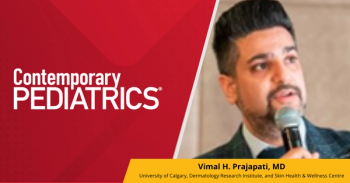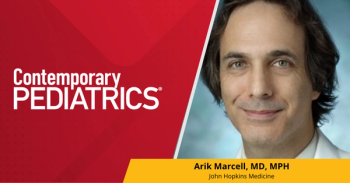
How to strengthen PCPs’ mental health training
A new nationwide program helps primary care providers (PCPs) with mental health training to better address routine psychosocial issues in children and their families.
The prevalence of mental health concerns in children has increased steadily over the last 30 years to approximately 1 in 5 children in the United States.1 Primary care providers (PCPs) often report time constraints to address mental health concerns and long waiting periods for mental health referrals as common barriers to identification and treatment of psychosocial concerns in children.2 Over half of general pediatricians who are recent graduates of pediatric residency programs indicated that they needed additional training in mental health.3
To address this growing concern, the US Department of Health and Human Services’ Health Resources and Services Administration (HRSA), Maternal and Child Health Bureau (MCHB) Division of Maternal and Child Health, provides funding for 10 programs nationwide to address the mental health-training gap and support the professional development of PCPs, known as collaborative office rounds (COR).4
Program highlights
All COR programs are structured as regularly scheduled discussion groups, co-led by developmental-behavioral pediatricians and child and adolescent psychiatrists, with the aim of increasing the comfort level and ability of PCPs to address routine psychosocial issues of children, adolescents, and their families.4 Participants include interdisciplinary community practitioners and trainees in fields such as medicine, psychology, dentistry, and social work. Most COR programs provide continuing education credits to participants.
MAIN GOALS
There are 5 primary goals of the University of Minnesota COR program, as follows:5
GOAL 1: Enhance PCP understanding of psychosocial aspects of child development, disorders, and disability.
GOAL 2: Increase provider availability to help children and families address these issues.
GOAL 3: Expand the provider’s ability to distinguish between transient disturbances and more serious psychiatric disorders that may require referral.
GOAL 4: Promote collaboration among PCPs with developmental-behavioral pediatricians and child and adolescent psychiatrists.
GOAL 5: Facilitate a comprehensive approach to health supervision, such as outlined in Bright Futures: Guidelines for Health Supervision of Infants, Children, and Adolescents.6
PROGRAM DESIGN
The University of Minnesota COR program was first established in 1996 and is designed as a biweekly-to-monthly case-based discussion addressing a real-word clinical dilemma selected by a community professional. A PCP chooses a challenging case to highlight from his/her practice, filling out a brief standardized online form that includes questions that the provider wants the group to address/assist with; age and presenting problems; developmental, academic, and past medical, social, and family histories; cultural and linguistic considerations; current services and interventions; initial diagnostic formulation and assessment; and relevant follow-up visit information (Table 1). The resulting de-identified case summary is sent electronically to participants 3 days prior to the meeting.
At the beginning of the one-hour session, COR participants (usually 10 to 20 persons) offer brief introductions of themselves to better understand the various health professions represented. Additional virtual options to participate via phone or video call are offered as well. The presenter then verbally summarizes the case over approximately 15 minutes. After the case is presented, participants ask clarifying questions before dividing into facilitated small groups of 4 to 6 persons for discussion of the case and to address the questions brought forth by the presenter. After 15 to 20 minutes of small group discussion, the entire group reconvenes for a larger discussion of the case for the remainder of the time. At least one representative from each small group summarizes the points discussed and offers any recommendations or resources for the presenter to consider for ongoing care of the patient. Examples of COR discussions that have been presented at the University of Minnesota are provided in Table 2.
The COR program at the University of Minnesota was recently highlighted in the media by Minnesota Public Radio, as mental health training is becoming an increasingly important public health concern.7 A unique aspect of the University of Minnesota COR program is our emphasis on hosting a conference that is geared toward providers in practices in conjunction with residents in training. In this way, primary care preceptors are encouraged to participate with their continuity clinic trainees by selecting a comanaged case for presentation. Discussing cases with providers with a range of experience levels provides rich opportunities for shared learning.
GUIDING PRINCIPLES
During each COR session there are 4 guiding principles that are followed:
1. Focus upon practitioners’ presentation of common clinical dilemmas.
2. Create a common language and supportive environment.
3. Enhance understanding of psychosocial aspects of child development, emotional and behavioral disorders, and disabilities, and the ability of providers to help families cope.
4. Increase the providers’ ability and comfort to differentiate transient from more severe disorders. Both prospective and retrospective analytical approaches are utilized to promote understanding of the case and plan for optimum care moving forward.
PROGRAM EVALUATION
The COR program at the University of Minnesota also collects quantitative and qualitative feedback for continuous quality improvement. Over 90% of participants reported that COR meetings met the program objectives well and most participants stated that they would continue to attend COR in the future (64.7% of respondents).
Some examples of general comments about the University of Minnesota COR program from attendees include: “a great opportunity to engage with peers”; “interactive and designed to address meaningful clinical problems”; and “convenient and free.” Suggestions for improvement include: “cases with effects of technology on children with autism”; and “ethics cases and challenges with medication management.”
Lessons learned
Challenges faced by our COR program include recruiting community providers outside the university to attend the sessions and lower participation numbers for monthly morning community sessions compared with monthly residency training-based lunch sessions. To increase participation, we have combined the community and residency training sessions into one monthly lunch session (with food provided), while offering virtual participation options. We encourage community clinics to block an hour of time for their clinicians to participate in COR monthly. Finally, we are exploring ways to help physicians to gain Maintenance of Certification (MOC) credit for COR participation.
Key takeaways
The COR program at the University of Minnesota is a case-based continuing-education initiative funded by the MCHB to address mental health training gaps for PCPs. Other programs could use the COR model to provide ongoing education and encourage collaboration among PCPs, primary care trainees, and mental health professionals.
References:
1. Perou R, Bitsko RH, Blumberg SJ, et al. Centers for Disease Control and Prevention (CDC). Mental health surveillance among children-United States, 2005-2011. MMWR Suppl. 2013;62(2): 1-35.
2. Horwitz SM, Kelleher KJ, Stein RE, et al. Barriers to the identification and management of psychosocial issues in children and material depression. Pediatrics. 2007;119(1): e208-e218.
3. Freed GL, Durham KM, Switalski KE, Jones MD, McGuinness GA, Research Advisory Committee of the American Board of Pediatrics. Recently trained general pediatrics: perspectives on residency training and scope of practice. Pediatrics. 2009;123 suppl 1: S38-S43.
4. Health Resources and Services Administration (HRSA). Maternal and Child Health: MCH Practicing Professional Development Program Fact Sheet. Available at
5. Health Resources and Services Administration. Maternal and Child Health: The Division of MCH Workforce Development: Funded Projects. Available at
6. Hagan JF, Shaw JS, Duncan PM, eds. Bright Futures: Guidelines for Health Supervision of Infants, Children, and Adolescents. 4th ed. Elk Grove Village, IL: American Academy of Pediatrics: 2017.
7. Roth A. ‘Mental health is health’: Docs who treat kids get trained to spot mental health problems. Minnesota Public Radio News. Available at:
Newsletter
Access practical, evidence-based guidance to support better care for our youngest patients. Join our email list for the latest clinical updates.








